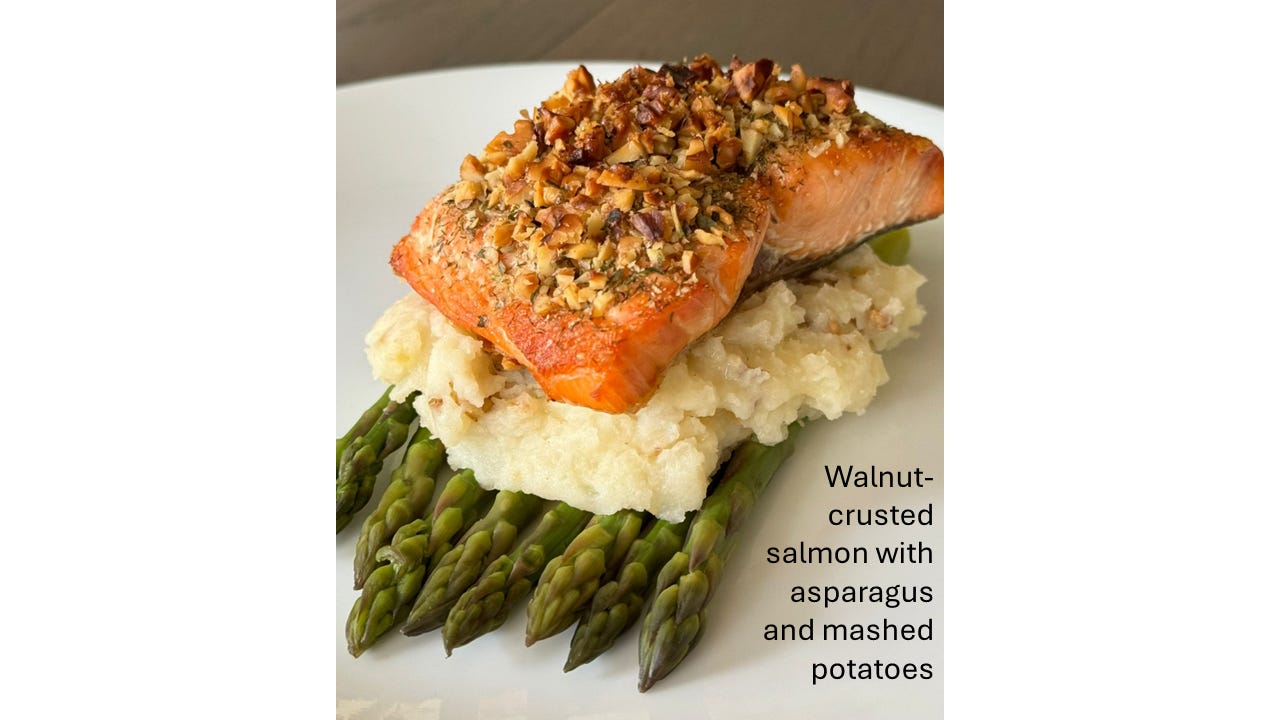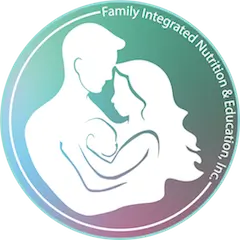Essential Nutrition Tips for Women Approaching 50
Guest Author: Gabriela Dedolph Food & Wellness Consultant
Co-Author: Dr. Jimi Francis, PhD, IBCLC, RDN, LD, RLC
As we age, our priorities begin to shift. As women, our nutritional needs change. It is time to take a hard look at our lifestyle and health. It’s important to focus on a balanced diet that supports overall health. This milestone isn’t just about celebrating life’s journey—it’s also a critical time to reassess your nutritional requirements. This phase of life often changes metabolism, hormone levels, and physical activity. Understanding and addressing these changes can empower you to take control of your health and feel confident in this new chapter of life. Join us today as we start this journey of discovery together!
Here are some fundamental physiological changes that occur around this age, the essential nutrients you should focus on, and tips tailored for this new chapter of life:
HORMONAL SHIFTS in women over 50 primarily relate to the transition into menopause, which typically occurs between the ages of 45 and 55. This natural biological process marks the end of menstrual cycles and brings about a decline in estrogen levels. Estrogen plays a vital role in many bodily functions, including regulating metabolism, maintaining bone density, and protecting cardiovascular health. As estrogen levels drop, women may experience weight gain, a slower metabolism, and an increased risk of osteoporosis and heart disease.
METABOLISM SLOWS DOWN with age, meaning your body requires fewer calories to maintain its functions. If dietary habits remain unchanged, this reduction in metabolic rate can lead to unintended weight gain. To combat this, it is essential to adjust your calorie intake, focus on nutrient-dense foods, and increase physical activity.
BONE DENSITY DECREASES as you age. The risk of developing osteoporosis, a condition characterized by weak and brittle bones, rises significantly after menopause due to the loss of estrogen, which helps protect bone mass. Ensuring adequate calcium and vitamin D intake is crucial to maintaining bone health and reducing the risk of fractures.
By now, you probably are wondering which nutrients are essential to go through this phase. Here are the key nutrients:
CALCIUM AND VITAMIN D are the cornerstones of bone health. Calcium supports bone structure, while vitamin D enhances calcium absorption in the body. As you approach 50, it’s important to include calcium-rich foods like dairy products, leafy greens, and fortified plant-based “milks” in your diet. Vitamin D can be obtained from sunlight, fatty fish, and fortified foods. If dietary intake is insufficient, consider a supplement, especially if you live in a region with limited sunlight.
PROTEIN is essential to maintaining muscle mass, which becomes more challenging as you age. Protein supports muscle repair and growth, which is particularly important as your body’s ability to synthesize protein decreases over time. Aim to include a source of protein in every meal, such as lean meats, fish, eggs, dairy, or plant-based proteins like beans and legumes.
FIBER plays a crucial role in digestive health, helping to prevent constipation and maintain a healthy weight by promoting a feeling of fullness. It also helps lower cholesterol levels and control blood sugar. Focus on incorporating fiber-rich foods like whole grains, fruits, vegetables, and legumes into your diet.
HEALTHY FATS are not created equal. As you approach 50, disease focusing on healthy fats, particularly omega-3 fatty acids, which support heart health by reducing inflammation and lowering the risk of heart disease, is vital. Good sources of omega-3s include fatty fish (like salmon and mackerel), flaxseeds, chia seeds, and walnuts.

Let us know if you would like the recipe for this dish of Walnut-crusted salmon. It is delicious!
ANTIOXIDANTS, which help neutralize free radicals in the body, are essential in combating this oxidative stress. Oxidative stress increases with age, contributing to the aging process and the development of chronic diseases. Incorporate antioxidant-rich foods such as berries, leafy greens, nuts, and seeds into your diet. These foods are rich in vitamins A, C, and E, which are powerful antioxidants that can help protect your cells from damage caused by free radicals, thereby slowing down the aging process and reducing the risk of chronic diseases.
MAGNESIUM AND POTASSIUM are vital for muscle function, nerve transmission, and maintaining healthy blood pressure levels. As you age, ensuring you get enough of these minerals becomes increasingly important. Magnesium-rich foods include nuts, seeds, leafy greens, and whole grains, while potassium can be found in bananas, potatoes, and avocados.
Nutrition and lifestyle modification approaches for enhanced well-being in this period
BALANCED MEALS are key to maintaining energy levels and supporting metabolic health. Eating balanced meals that include a variety of macronutrients (carbohydrates, proteins, and fats) can help you meet your nutritional needs. For example, a balanced meal could include a serving of lean protein like grilled chicken, a portion of whole grains like quinoa, and a generous serving of vegetables. Portion control is also important as your calorie needs decrease with age. Consider incorporating more plant-based foods into your diet, which are typically lower in calories and higher in nutrients. This balance in your diet can reassure you that you are taking care of your health in a comprehensive way.
Hydration is crucial for health for individuals over 50, as the body undergoes various changes that affect fluid balance. Staying hydrated is essential, especially as your body’s ability to conserve water decreases with age. Aim to drink plenty of water throughout the day. Carry a large bottle of water with you, and be mindful of your fluid intake during physical activity or hot weather. Make a habit of having a large bottle of water with you, especially on the go.
Physical activity is not just about maintaining muscle mass and supporting cardiovascular health. It’s about promoting your overall well-being. By incorporating a mix of strength training, which helps preserve muscle and bone density, and cardiovascular exercise, which supports heart health and aids in weight management, you can feel inspired and motivated to take charge of your health. The benefits of physical activity go beyond just physical health. They can also improve your mental and emotional well-being.
As you approach 50, mindful eating becomes increasingly important. This involves not just eating but paying attention to your hunger cues, choosing nutrient-dense foods, and avoiding emotional or mindless eating. By practicing mindful eating, you can feel more in tune with your body, maintain a healthy relationship with food, and prevent overeating.
Supplements may be helpful. While it’s ideal to obtain nutrients from food, there are situations where supplements may be necessary, particularly if you have dietary restrictions, health conditions, or live in an area with limited sun exposure. However, supplements should complement and not replace a balanced diet.
If you cannot meet your needs through food alone, consider common supplements such as calcium, vitamin D, omega-3s, and magnesium. Before starting any supplement regimen, please consult your nutritionist or healthcare provider to determine the appropriate dosage and ensure it aligns with your health goals.
Women over 50 can enhance their quality of life and support their long-term health by prioritizing nutrition. If you want personalized guidance, schedule a consultation with Family Integrated Nutrition and Education to develop a plan that meets your unique needs. Your 50s can be your healthiest and most vibrant years yet! Start nourishing your body today! Learn more about your mineral nutrient status with a tissue mineral analysis. https://familyintegratednutritioneducation.com/product/tma-tissue-mineral-analysis/
Portion Size Guidance for Women Over 50: Eating for Health and Balance
As women age, their metabolism can slow down, especially if they are inactive. Our next article will address how to fit activity into your life. Your nutritional needs change due to muscle mass, bone density, and hormonal changes. Portion control becomes even more crucial to ensure you get the nutrients you need without over-consuming calories. Remember, these are generalizations to help develop a better Read More by Subscribing to Dr. Jimi’s Substack (Free and Paid Subscription levels are available.)
©copywrite Dr. Jimi Francis, 2024
